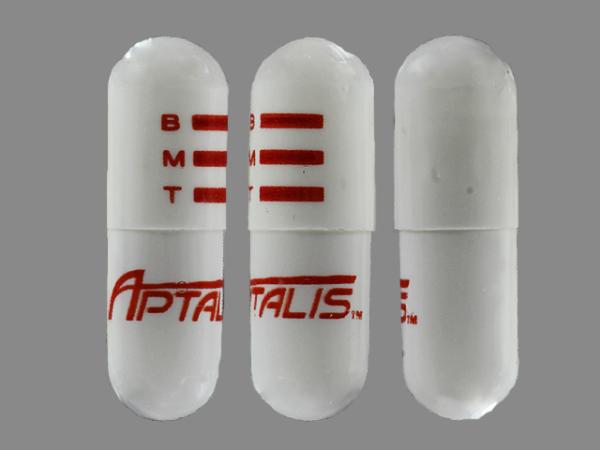Bismuth Subcitrate Potassium / Metronidazole / Tetracycline Dosage
Medically reviewed by Drugs.com. Last updated on Sep 8, 2025.
Applies to the following strengths: 140 mg-125 mg-125 mg
Usual Adult Dose for:
Additional dosage information:
Usual Adult Dose for Helicobacter pylori Infection
Bismuth subcitrate potassium 420 mg-metronidazole 375 mg-tetracycline 375 mg orally 4 times a day (after meals and at bedtime)
- Duration of therapy: 10 days
Comments:
- Omeprazole 20 mg should be given orally 2 times a day during treatment (after morning and evening meals).
- Helicobacter pylori eradication has been shown to reduce duodenal ulcer recurrence risk.
Use: Eradication of H pylori infection in patients with active or a history (e.g., within 5 years) of duodenal ulcer infection and/or disease
Renal Dose Adjustments
Mild to moderate renal dysfunction: Data not available
Severe renal dysfunction: Contraindicated
Liver Dose Adjustments
Mild to moderate liver dysfunction (Child-Pugh A and B): Use with caution; monitoring is recommended.
Severe liver dysfunction (Child-Pugh C): Not recommended.
Precautions
CONTRAINDICATIONS:
- Hypersensitivity to any/all of the active components (including other nitroimidazole derivatives) or the ingredients
- Patients taking methoxyflurane concurrently
- Patients who consumed alcoholic beverages at least 3 days during/after treatment
- Severe renal dysfunction
- Use in pregnancy
- Use of disulfiram within the last 2 weeks
US BOXED WARNINGS:
POTENTIAL FOR CARCINOGENICITY:
- Metronidazole has been shown to be carcinogenic in mice and rats.
- It is unknown whether metronidazole is associated with carcinogenicity in humans.
Safety and efficacy have not been established in pediatric patients.
Consult WARNINGS section for additional precautions.
Dialysis
Data not available
Other Comments
Administration advice:
- This drug should be given with a full glass of water (e.g., 8 ounces), especially the bedtime dose.
- If a dose is missed, patients should continue the normal dosing schedule; patients should not take double doses.
General:
- Limitation of use: This drug should be used only to treat infections that are proven/strongly suspected to be caused by susceptible bacteria.
Monitoring:
- DERMATOLOGIC: Erythema/photosensitivity, signs/symptoms of cutaneous reactions
- HEMATOLOGIC: Initial and post-treatment total and differential leukocyte counts, especially in patients with evidence/history of blood dyscrasias
- OCULAR: Ophthalmologic evaluation in patients who develop visual disturbances
Patient advice:
- Tell patients that it is important to complete the full regimen.
- Instruct patients to seek medical attention if signs/symptoms of hypersensitivity, abnormal neurological effects, photosensitivity, or other cutaneous reactions occur.
- Patients should be told to avoid unprotected exposure to sunlight/UV light during treatment.
- Advise patients to speak to their healthcare provider if they become pregnant, intend to become pregnant, or are breastfeeding.
More about bismuth subcitrate potassium / metronidazole / tetracycline
- Check interactions
- Compare alternatives
- Pricing & coupons
- Reviews (272)
- Drug images
- Side effects
- During pregnancy
- Drug class: H. pylori eradication agents
- En español
Patient resources
- Bismuth subcitrate potassium, metronidazole, and tetracycline drug information
- Bismuth subcitrate, metronidazole, and tetracycline (Advanced Reading)
Other brands
Professional resources
Other brands
Related treatment guides
See also:
Further information
Always consult your healthcare provider to ensure the information displayed on this page applies to your personal circumstances.


